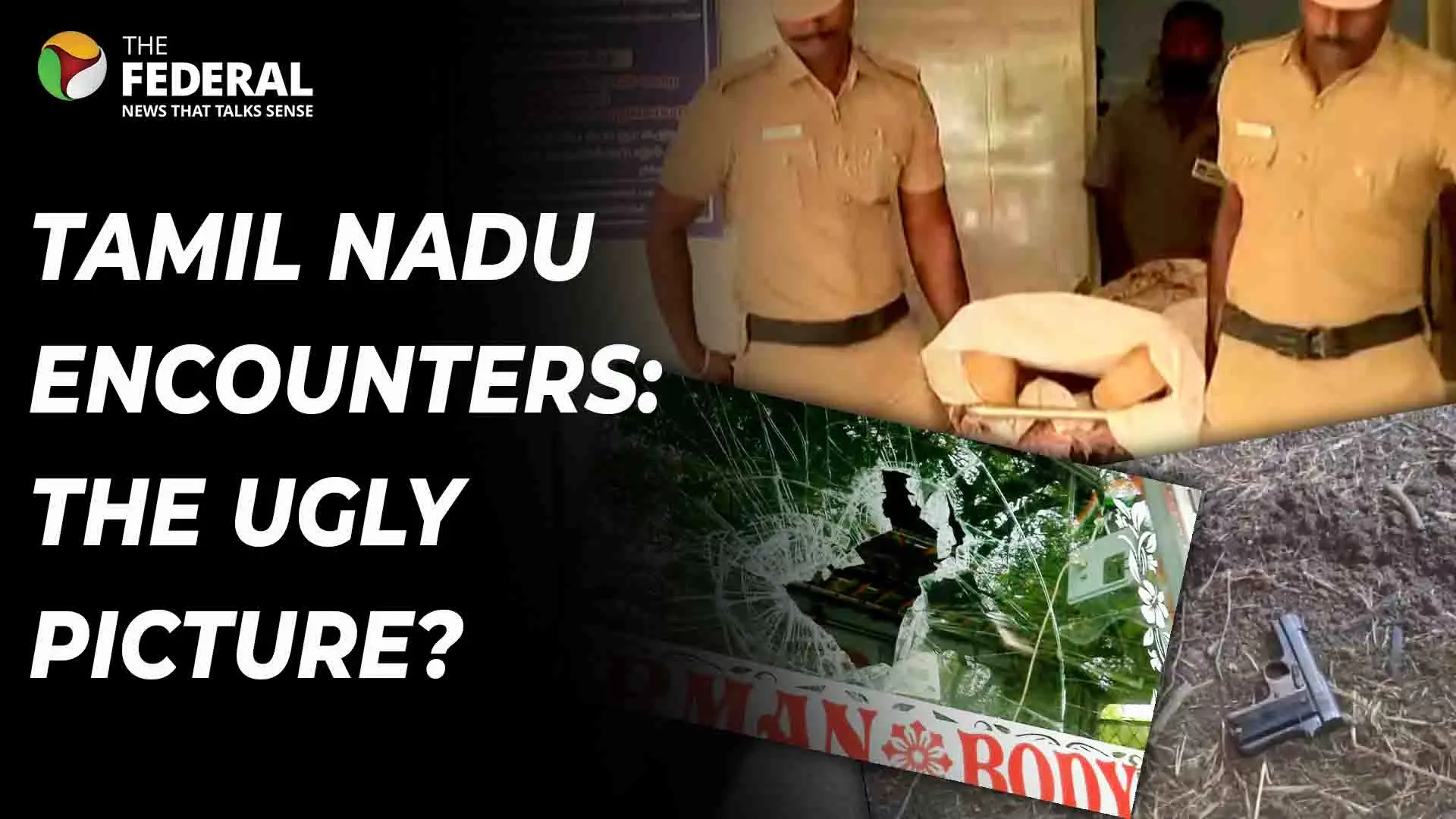
From Chennai’s Taramani to Madurai and Salem, a steady stream of encounter deaths have occurred.
4 years, 18 police encounters, 21 deaths: A tale of missing accountability in TN
In this video, we examine the rising number of police encounters in the state, where deaths are often attributed to 'self-defence'

In a gripping night-time police chase in Tamil Nadu, a young man riding a motorbike is closely pursued by police. That man was Vijay, a 20-year-old repeat offender with over 30 criminal cases to his name. It was the last time he was seen alive in public. A week later, he was shot dead by Tamil Nadu police, allegedly in an act of self-defence.
But Vijay’s case isn’t the only one. Over the past four years, Tamil Nadu has witnessed at least 18 police encounters and 21 deaths, according to human rights organisations.
From Chennai’s Taramani to Madurai and Salem, a steady stream of encounter deaths have occurred. Police often defend their actions as unavoidable, carried out in self-defence.
Also read: TN’s third encounter of 2025 sparks debate on extrajudicial deaths under DMK govt
In Cuddalore, SP Jeyakumar defended one such shooting by stating that first a constable, Gopi, was shot dead, followed by Ganapathy. “To save a constable’s life, [the accused] was shot dead.” A similar justification was made when Chennai police gunned down a chain snatcher from North India.
No independent probes
Despite these explanations, most of these cases do not undergo independent magisterial inquiries—an essential legal requirement in encounter deaths.
Human rights lawyer Henri Tiphagne has called out the lack of oversight. “I’m asking the honourable chief minister of Tamil Nadu to perform his duties as the minister responsible for the police. Does he check if the CCTV cameras in police stations are working?”
In 2021, when MK Stalin assumed office, he announced the fifth Police Commission with promises of better pay, mental health care, and stronger police-public engagement. The commission also directed the health department to ensure videographed autopsies, prompt postmortem reports, and access to evidence for families.
However, according to Tiphagne, these reforms have made little impact. “There is very little redressal.”
Accountability concerns
The concern over accountability draws attention to a 2020 Madras High Court ruling in a custodial death case where police claimed the suspect had died by suicide. Unconvinced, the court ordered a second, videographed postmortem by forensic experts. The ruling resulted in landmark guidelines: second autopsies in suspicious deaths, full access to visuals for families, and increased transparency from hospitals.
Tiphagne points out that even this isn’t followed consistently. “Tamil Nadu is the only state with such a progressive judgement. But hospitals delay or deny the postmortem evidence for months.”
Also read: How Chennai cops used a pair of shoes to nab career criminals from Mumbai
Oversight bodies like the State Human Rights Commission and SC/ST Commission have remained largely inactive, taking little to no action in encounter or custodial death cases.
In a state that prides itself on a legacy of social justice, the recurring pattern of encounter killings—and the silence that follows—reveals a deeper crisis. At times, two encounter deaths occur within the same week. And the only thing repeatedly missing is accountability.
The content above has been generated using a fine-tuned AI model. To ensure accuracy, quality, and editorial integrity, we employ a Human-In-The-Loop (HITL) process. While AI assists in creating the initial draft, our experienced editorial team carefully reviews, edits, and refines the content before publication. At The Federal, we combine the efficiency of AI with the expertise of human editors to deliver reliable and insightful journalism.

